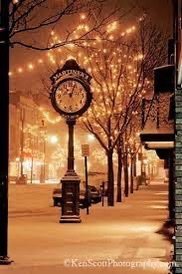Our tiny tree! I bought it last year because I could no longer lug our big one from our storage unit with a hand truck and put it up. Jerry would have helped, but he’s just not able. So, the tiny tree. It was swallowed up in our big condo last year, but it exactly fits our new apartment. Of course there’s the yearly fuss about how many ornaments (J’s a minimalist, I’m a maximalist). But here we are, Christmas upon us, tiny lights on all the outside bushes, our tree plus our basket of fake greens and lights blazing into the darkest time of the year.
It is dark, for many people. I have to work at cheer, myself. Too much history of difficult Christmases. Maybe some people automatically get cheerful, but when it seems cheerfulness is dictated, I have trouble following the rules. In any case, the lights help.
I’m teaching another workshop—this one billed as a free-write—on the 16th. When the International Women Writers’ Guild says a “free-write,” they mean guidance, not just sit-and-write. “Teaching” someone to write is crazy, we all know that. All we can do is offer suggestions and the proper atmosphere to those who are already working to write better.
What’s “better”? you ask. All literate people can write. But not all literate people can break through the surface chatter, the easy language, the cliché, to genuine newness of expression. The poet Donald Hall used to send back my poems (we used actual paper and envelopes in those days) with phrases underlined. “Those are dead wood,” he’d say. He meant any group of words that have been used together enough to not be heard any more with their original sharpness. Take “swallowed up,” from my paragraph one. Don would have underlined that one. When it’s heard enough times, we roll past it in our minds. It loses the sense of the embedded metaphor. We don’t picture something actually being swallowed. It lands like dead wood, useful to move the sentence forward but useless to do what it was designed to do—offer us an image to expand the meaning.
A teacher’s job is to point this out. And to push the writer toward not just new language but new thought. Easy to say. Some writers are so stuck they get defensive if anyone challenges their language. You can’t help them. The whole writing thing is about pushing beyond the ego, knuckling it out of the way, ignoring it, enough to get on with the work.
You have to have ego working with you, though. It’s tricky. You have to believe your words matter in the larger scheme of things. You have to believe that your individual self has something to offer that no one else can provide.
There’s so much going on here for the holidays, a whole page of activities. The choral group (Jerry’s in it) are preparing a special concert for Christmas. There are other special performances, gingerbread house decorating, holiday brunch, cookie decorating, and so on. I have to say—another phrase Don would probably underline—all this helps me dispel the feeling that creeps over me this time of year.
Christmas lights in downtown Traverse City
And isn’t that fitting? It’s dark, days are short. The whole POINT of all this cheer is to brighten the heart during the winter solstice. It has been that since the yule log, since the Germans first put candles on trees in the 17th century. And of course it seemed appropriate to celebrate the birth of Christ as the light of the world at the time when light was most needed.
In 1882, Edward Johnson, friend and partner of light-bulb inventor Thomas Edison, put up the first electric light display. He would have been overwhelmed by our downtown lights. I notice lights are more plentiful and beautiful this year. I’m sorry they use so much electricity, I’m sorry they lighten the sky too much for the birds and other creatures. But they make me smile. They make a lot of us smile. We haven’t smiled so much in the past few Covid years.
The P.S. . . .
You can sign up for the free write here. It’s from 1:00-2:30 on Dec. 16th. it’s free and it’s for anyone, not just IWWG subscribers.


